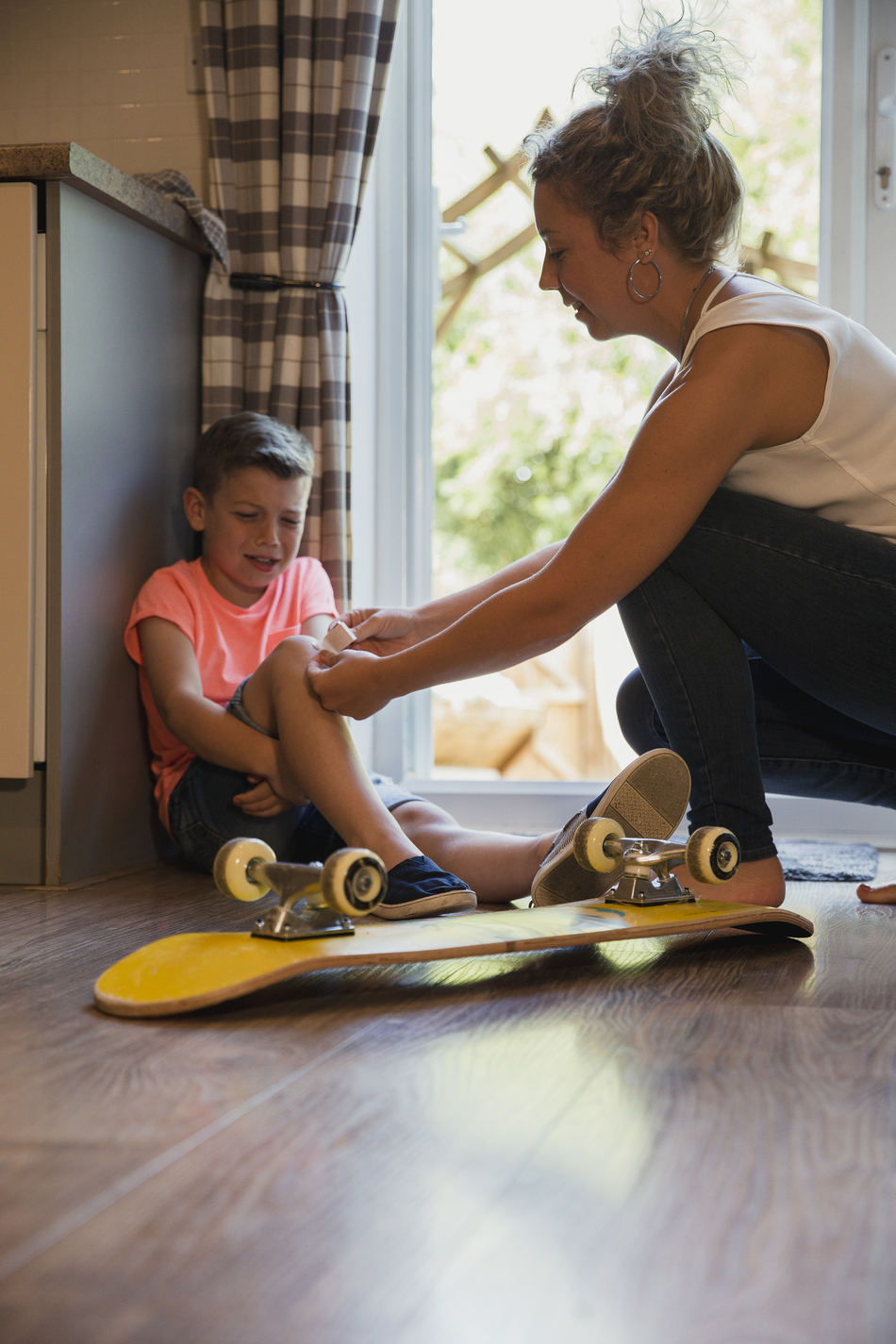
Episode Transcript
Dr. Gellner: Kids are bound to get hurt at home. It's inevitable. So what are the five most common pediatric home injuries? How do you treat them and what can parents do to prevent them from happening in the first place?
Announcer: Keep your kids healthy and happy, you are now entering the "Healthy Kids Zone" with Dr. Cindy Gellner on The Scope.
Dr. Gellner: If you have kids, you know how active they can be and how despite how hard you try as a parent to protect your kids, unless you have them in one of those inflatable bubbles, they're going to get hurt. There are five common home injuries that actually can be fatal but are quite preventable.
The first is drowning. It's the leading cause of death in one to four-year-olds. Whether this is because there's a swimming pool that they have access to or they're left alone in the bathtub, little kids can drown in just inches of water. If your home has a pool, make sure there is a gate around your pool that is locked and that your child can't open the lock. Some parents install pool alarms to be able to detect if something is in the pool. As for bathtubs, if your child is taking a bath, stay with them. Don't leave, not even for a second. Stay with them until they're old enough to bathe themselves or shower themselves.
The second injury is actually the overall leading cause of death for children at home and that's suffocation. That's why we recommend nothing in a baby's crib or bassinet. They can roll right into a teddy bear and can't roll away. Older preschoolers can get caught up in cords for blinds or drapes. There are hooks that parents can install higher up than a child's reach to keep the cords out of the way and prevent this.
Third are fires and burns. It's amazing how many parents don't keep up with changing the batteries on their smoke detectors. That's a simple way to protect the whole family. Thermal burns are trickier because kids are really fast at getting into things you don't want them touching like hot beverages, soups, and hairstyling devices. Close supervision in the bathroom and kitchen are crucial with young children. In the bathroom, there's also the risk of thermal burns with hot baths. Never leave a child in a bathtub with water in it, and make sure your hot water heater is set to 120 degrees Fahrenheit to prevent hot water burns while bathing little kids.
Next is falling, specifically downstairs. Baby gates at the top and bottom of stairs are a must if you have a little person in the home. We get calls at my office all the time about how parents turn their backs for just a second and their toddler fell down the stairs, and parents are concerned about concussions. While kids are tougher than we give them credit for, hitting their head on something hard at just the wrong spot can cause significant injuries. And also remember windows. Many parents think that if a window has a screen on it, it's okay, but screens are not meant to bear the weight of a toddler or a preschooler. And if they fall out of a second story or higher window, it could be fatal.
Finally, poisoning. Each year over 10,000 calls are made to the Poison Control Center. Many of them are for children. If you think your child has gotten into anything potentially toxic, call Poison Control at 1-800-222-1222. Don't wait and call your pediatrician's office as that may delay treatment. We have a saying in toxicology, "The dose makes the poison." The experts at the Poison Control Center will be able to tell you how much your child will need to have ingested or gotten onto their body for it to be a concern and will be able to give you advice on just what to do, whether it's something that you can do at home or if they have to go to the emergency room and we don't recommend syrup of ipecac anymore.
The best thing is to keep anything dangerous or poisonous out of sight and out of reach of curious little kids. Cleaners should be kept high up or behind locked kitchen cabinets. Medications, even children's vitamins should be kept where kids can't get to them. Remember, for all of the hazardous situations, the best thing you can do as a parent is prevent them from happening in the first place.
Childproof even before your baby is able to crawl. Get down on your hands and knees and see what your baby or toddler sees from their point of view to get a better idea of how high you need to put things out of reach. Be sure to lock doors and cabinets that need to stay shut and above all else, keep an eye on your child. It's hard work to always be right there, but it is so worth it to make sure your child is safe.
Announcer: Have a question about a medical procedure? Want to learn more about a health condition? With over 2,000 interviews with our physicians and specialists, there's a pretty good chance you'll find what you want to know. Check it out at thescoperadio.com.